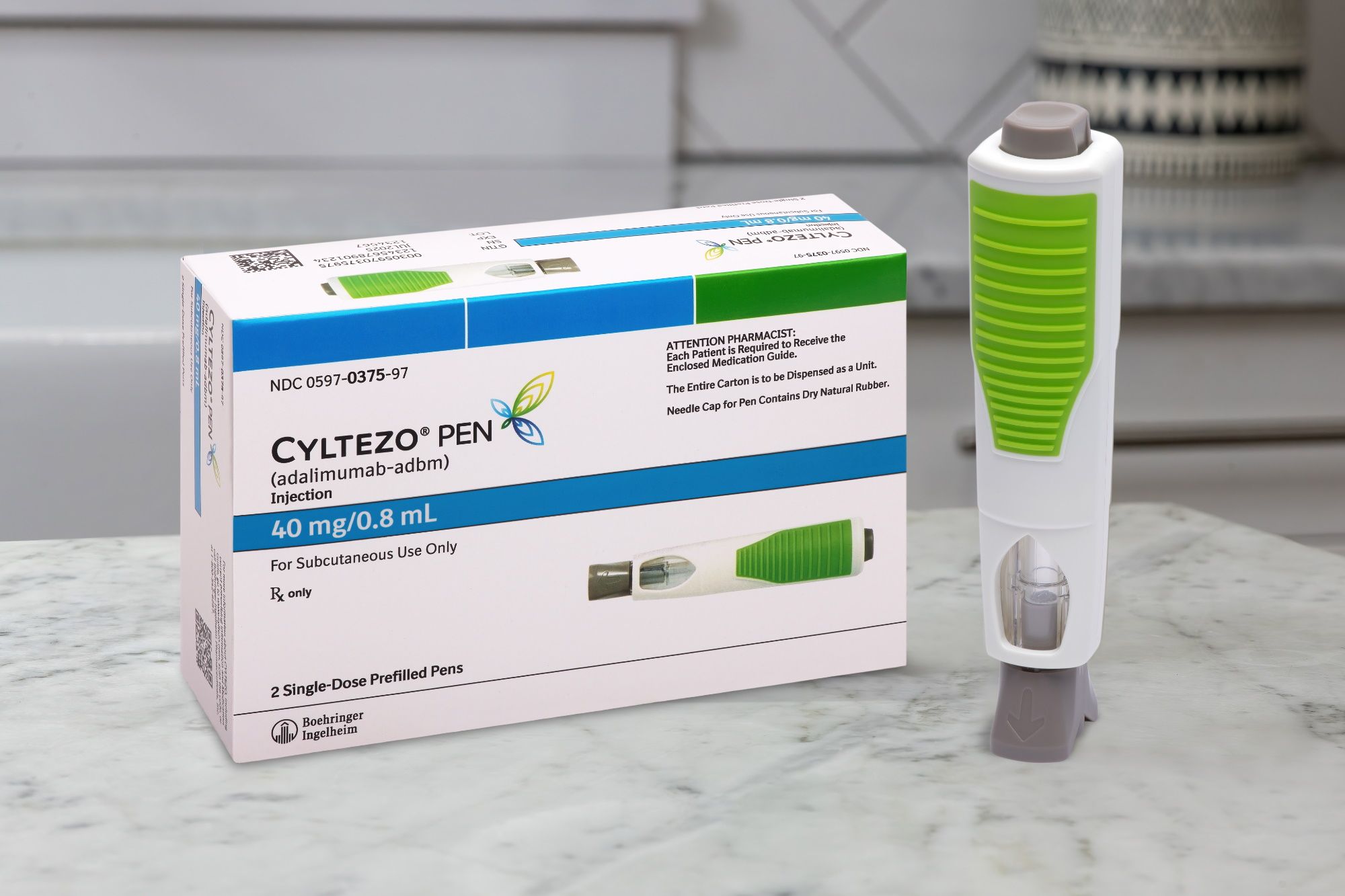- Bone Health
- Immunology
- Hematology
- Respiratory
- Dermatology
- Diabetes
- Gastroenterology
- Neurology
- Oncology
- Ophthalmology
- Rare Disease
- Rheumatology
Summary of VOLTAIRE-X Study Explains Decision Behind Cyltezo Interchangeability
Cyltezo (adalimumab-adbm) was the first adalimumab biosimilar—and second biosimilar overall—to receive an interchangeability designation from the FDA.
A summary of research published in Dermatology and Therapy provides a concise reference document for physicians, patients, and pharmacists on the VOLTAIRE-X study in patients with plaque psoriasis, which led to the interchangeable designation for Boehringer Ingelheim’s adalimumab biosimilar Cyltezo (adalimumab-adbm).

Adalimumab is a monoclonal antibody targeting tumor necrosis factor (TNF)-α. The reference product, Humira, was approved by the FDA in 2002 and European Medicines Agency (EMA) in 2003, and adalimumab biosimilars began to enter the US market in 2023. Cyltezo was the first adalimumab biosimilar approved as interchangeable by the FDA and the second interchangeable biosimilar overall.
In the VOLTAIRE-X study, patients with plaque psoriasis either continually received the reference product biweekly for 48 weeks or switched 3 times between the reference product and biosimilar. There were no significant differences between groups in efficacy, safety, or immunogenicity. Based on these results, adalimumab-adbm was approved as interchangeable with the reference product, meaning that Cyltezo can be substituted for Humira by a pharmacist without permission from the prescriber in the US. However, many individual state laws require the prescriber to be notified, and all states allow prescribers to prevent pharmacy-level substitutions. Four states as well as Puerto Rico restrict interchangeability entirely.
The summary of research is an infographic-style reference including an explanation of interchangeability, the characteristics of participants in the VOLTAIRE-X study, inclusion and exclusion criteria, the research questions asked, the timeframe and process of the study, and its main results.
All patients were treated with the reference product once every other week until week 12. At week 14, patients were randomized to either remain on the reference product or switch between the biosimilar and reference product three times between weeks 14 and 32. Patients then remained on either the reference product or biosimilar until 48 weeks and were monitored for side effects until 58 weeks.
The summary briefly describes the results of the study, which supported interchangeability: Pharmacokinetics as measured by the area under the concentration-time curve and maximum adalimumab concentration in the blood during weeks 30 to 32 met bioequivalence criteria. Psoriasis severity was measured by the Psoriasis Area and Severity Index (PASI) score. At week 32, 79.0% and 84.8% of patients in the reference product group and multiple switch group had experienced a 75% improvement in PASI score (PASI75). Another efficacy indicator, static Physician’s Global Assessment (sPGA) score, was also measured at 32 weeks and was similar between groups. Anti-drug antibodies were detected in 90.2% and 94.5% of patients in the control and switch groups, and neutralizing antibodies were detected in 41.1% and 41.8% of patients.
Throughout the study, 18.3% of patients continually receiving reference adalimumab, and 11.9% of patients who switched between adalimumab products experienced side effects considered related to treatment. Fewer than 5% of patients experienced severe side effects, side effects of special interest, or side effects leading to discontinuation, and the proportions of these were similar between the 2 groups.
The VOLTAIRE-X study reported equivalent pharmacokinetic parameters in the groups and the results suggested that switching between the reference adalimumab and the biosimilar Cyltezo was as effective as continually staying on the reference product for improving psoriasis symptoms. The summary, written by the first author of the original VOLTAIRE-X publication, provides a concise, graphical summary for physicians who prescribe adalimumab, pharmacists who dispense adalimumab, and patients.
Reference
Menter A. Summary of research: switching between adalimumab reference product and BI 695501 in patients with chronic plaque psoriasis (VOLTAIRE-X): A randomized controlled trial. Dermatol Ther (Heidelb). 2023;13(12):2929-2932. doi:10.1007/s13555-023-00995-z
Newsletter
Where clinical, regulatory, and economic perspectives converge—sign up for Center for Biosimilars® emails to get expert insights on emerging treatment paradigms, biosimilar policy, and real-world outcomes that shape patient care.
